An Interview with Carla Damron
by Paula Gail Benson
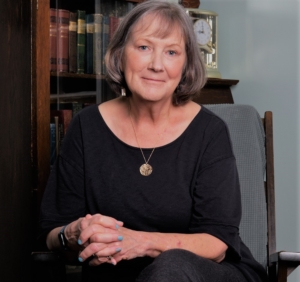
Drawing from her own life and work experience, Carla Damron has crafted intriguing mysteries, diverse characters, and suspenseful stories. Her latest, The Orchid Tattoo, explores the world of human trafficking. Today, she joins us to talk about her writing. Welcome, Carla!
When did you first know you wanted to be a writer?
I wrote as a kid—bad poetry about animals mostly. Then I got sidetracked, focusing on psychology in college and then social work. But a part of me always, always loved the beauty of story. I decided to explore storytelling more seriously once my social work career was well underway.
You have brought many of your experiences as a social worker to your writing. How has your awareness of the human condition, learned as a social worker, helped to develop your writing skills and to select the themes you feel are so important to address in fiction?
I don’t select the themes—I think they select me. I find myself writing about issues that trouble or haunt me. Writing can be therapeutic that way. For example, when I worked with folks struggling with homelessness and mental illness, I felt compelled to write a story that examined what their lives are like. Even writing in the mystery genre, there’s room to shine a light on important issues. In The Orchid Tattoo, I focus on how human trafficking happens right here in our communities, because this is something that has haunted me for several years.
Caleb Knowles, your mystery series protagonist, is surrounded by very strong characters as well as by characters who are very much in need. How does he find balance in a world where so much is uncertain or confused? What is his concept of justice?
Caleb feels things strongly, and sometimes this affects his judgement. He makes mistakes and gets himself in trouble, but usually for a good reason. In terms of “balance”, I don’t think he’s found it yet—he tends to get overly involved with his clients, and when he feels things are unjust, it can make him rash. He wants a world where there is racial equity and justice. Where people who have mental illness aren’t defined by their disease. Where people who are unhoused have worth and are helped, not discriminated against. He’s very naïve this way. I guess I am, too.
You graduated from the MFA creative writing program at Queens College in Charlotte. Which writers do you think benefit most from getting a MFA?
The MFA can be expensive. I’d love to say all writers would benefit, but I think it’s a deeply personal decision. It was the right thing for me, because I was struggling with a writing project that was very complex and needed to expand my skill set. And honestly, I LOVED devoting that kind of time and energy to improving my craft. It felt like a gift. But that doesn’t mean it’s right for everyone.
In The Stone Necklace, you use a style I’ve heard you call “braided” storytelling. How does it work and what do you find most challenging about it?
That’s the book that sent me to graduate school. I wanted each character to have their own arc. I wrote from five POVs—and had to keep each storyline balanced so that one didn’t overwhelm the others. The characters connect, separate, reconnect—like a braid does.
You use a similar “braided” storytelling style in The Orchid Tattoo, in that you tell the story from different viewpoints. Not only are you exploring the world of a human trafficking victim, but also you examine the life of a person co-opted to work for the traffickers. How difficult was it to write from these very different perspectives?
Once the characters crystallize in my imagination, I let them tell me their story. Honestly, that’s what it’s like. Sometimes I have to nudge them a little, but once the characters feel real to me, it becomes a pretty organic process.
Have you heard from trafficking victims about The Orchid Tattoo? What is their reaction?
I haven’t. I’ve had advocates and law enforcement people thank me for telling this story, and that means a lot to me.
Are you planning additional Caleb Knowles novels?
Caleb wasn’t done with me. The fourth in that series, Justice Be Done, is at the publisher right now. I’m hoping it will be out later this year.
In addition to your novels, you’ve also written short stories. Where have they appeared?
Melusine Magazine, Jasper Magazine, Fall Lines, Mystery on the Wind. My latest flash piece, Delilah, was short-listed for the Pulpfictional award (winner to be announced 3/31) and will appear in its anthology.
How important is it for writers to have groups and networks with which they connect?
For me it’s critical. Writing can be a lonely thing. Having a critique partner or a group for support, guidance, and feedback are invaluable. How do you know if your story will gel with readers if you don’t get their input?
*******
Brief Bio: Carla Damron is a social worker, advocate and author whose last novel, The Orchid Tattoo, won the 2023 winter Pencraft Award for Literary Excellence. Her work The Stone Necklace (about grief and addiction) won the 2017 Women’s Fiction Writers Association Star Award for Best Novel and was selected the One Community Read for Columbia SC.
Damron is also the author of the Caleb Knowles mystery novels, including Justice Be Done, the fourth in this series. She holds an MSW and an MFA. Her careers of social worker and writer are intricately intertwined; all of her novels explore social issues like addiction, homelessness, and mental illness.

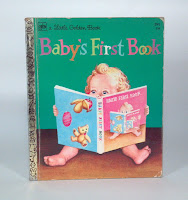
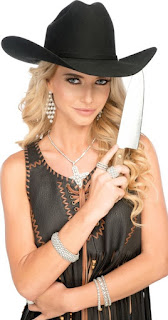
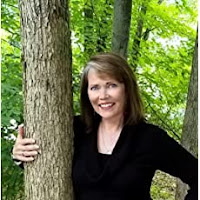

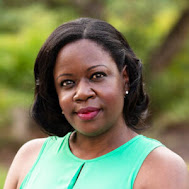
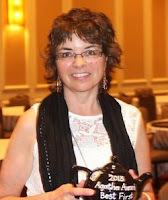

I enjoyed this interview so much. Some of the best literature comes from the minds of psychologists and social workers, whose hearts for people extend to characters.
Thank you!
I thoroughly enjoyed this post! It gave me an excellent insight to the way a writer can tell a fictional story that can impact real issues we face in society.
Carla, your series sounds interesting and vital. I look forward to making Caleb’s acquaintance. thanks for the post, Paula Gail.
Thanks, Gay!
Saralyn, Kathryn, and Gay, thank you so much for your kind words. Carla is a fabulous author. I can’t recommend her books enough.
Great interview!